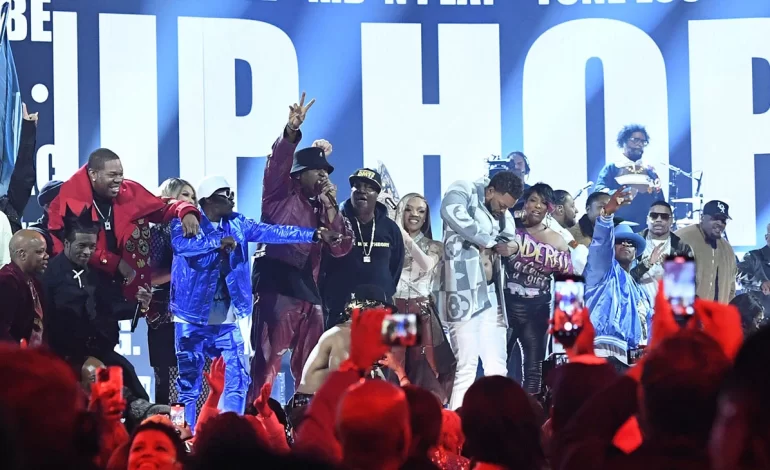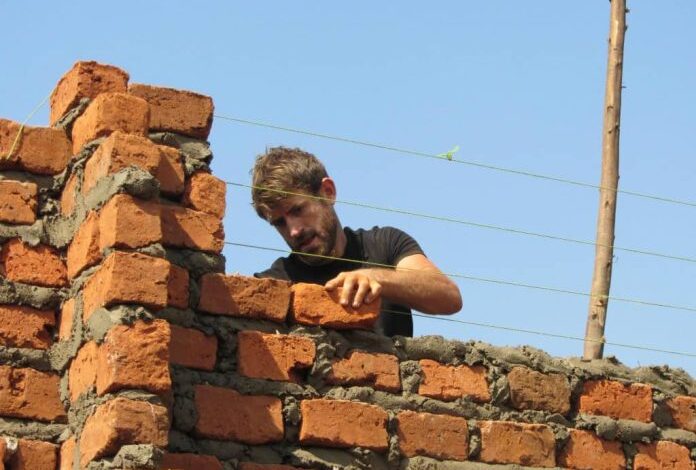To most people, the success of the hip-hop genre is because of the actual rappers, aka emcees. Although it takes an amazing wordsmith / dope rapper to give hip-hop life, it takes an awesome music producer to give hip-hop its sonic power.
Jude Watsaba a.k.a J-Wats is a Ugandan Hiphop singer, rapper and producer and in November 2022, he got signed under Baboon Forest Entertainment as their in house producer.

Born 13th Dec 1995, the 28 year old dropped his first two singles, “Man of The Year ” and “Down on Me” featuring rapper the mith in 2016. In 2018, he released his debut album “On My Own”, which saw him win a couple of awards in the Hip-Hop Awards that same year.
Among his other projects include ” Hola” remix featuring Flex D`Paper, Pryce Teeba, Play 01 and Byg Ben and DelBoy. He has also worked with Runtown, a Nigerian musician on his East African tour which had him perform in Kigali Rwanda.

On 25th August 2022 J-Wats released his latest album, “Relief” that offers 15 tracks that were executively produced by him.
On December 1st 2022, J-Wats made a highly successful joint event with rappers Byg Ben and Play01 for a combined “Album Listening Party” they named “RAY Of Experience”; RAY being a combination of the first letters of their respective albums that is Relief by J-watts, Aura by Play01 and Yvett by Byg Ben Sukuya.

I had a one-on-one with “Jay” and below this is how it went:
How would you describe your job as a producer?
My role is to get the artist’s vision accomplished in the most refined form. I’m locked in mentally until the job is done and deliver an internationally viable finished product. At the end of the day, you are paid to produce but I go an extra mile to ensure that I blow the minds of my collaborators and clients. People tend to think that a producer is running around and playing a bunch of instruments, and that’s not really the case. On Michael Jackson’s Thriller — Quincy Jones didn’t come into the studio and play everything himself. He understood Michael’s vision, and got the best people he could for drum programming, strings, arrangements, and even co-writers. Basically, he did an epic job of completing the tasks at hand, and creating a great album. I aspire to that greatness!

What’s the difference between a beat maker and a producer?
Thank you for this highly important question and I heard you guys dissect it on the Basement Podcast. But For me, a producer brings in hook ideas and song structures. A beat maker says, “Here, rap to this.” Anybody can grab some kick and snare sounds along with a sample loop or a piano sound and be done in five minutes — but that doesn’t mean it’s going to move anybody. A good producer can take chords, sounds, textures, and use them to deliver emotions and dynamics within a track. Also, being aware of tempo is very important.

What are some common mistakes you hear from up-and-coming producers?
Over compression. I was guilty of it when I was starting up. You don’t really know what compression does, you just know everyone is using it. It can be a wonderful tool for shaping the sound, but it can also sneak up on you and suck the life, soul, and dynamics right out of the acoustics of a song.
How do you use compression to enhance clarity and punch?
Oftentimes I will run bass, kick, and sometimes the snare through the SPL Transient Designer. It’s not a compressor, but the amount of control it gives you is amazing. Even beyond adding punch, it’s the perfect tool for crafting snare samples, letting me use the natural reverb, rather than having to use a reverb plug-in. That can really make or break a groove. To be honest, UAD plug-ins have helped me make the transition to recording in the box. Some of the first hardware I used for vocal processing were the Manley VOXBOX and the Massive Passive EQ, and the Teletronix LA-2A compressor. The UAD versions of those are my go-to plug-ins.

What are some techniques that you use with compression, say with bass lines?
I’ll take a live bass player’s line and remove any sub-bass that is happening with his track, then I add the real low stuff in later with a synth as a layer, doubling the melody or accenting certain tones to make add extra punch and resonance.
There are sounds that you may not want to use in something uptempo, simply because there’s too much reverb tail on the snare, for example. If the BPM is 140 or 150 and there’s a huge reverb tail on the snare, the sound of the reverb could take up the whole track and drag the energy down. A good producer, or a good beat maker, knows how to make the right choices with things like that, and ultimately, how to capture a moment. Good producers and beat makers put together sets of sounds that can deliver an experience.

What one piece of advice can you give to producers who want to become as good as you?
Don’t give up and don’t put a time limit on it. When I decided to go professional, I decided I’d give myself a couple of years, and then I decided to give myself another year on top of that. At the end of that two-year period where I was interning and assisting engineering, it wasn’t working out and nothing was really happening. Persistence overrides resistance at the end of the day.
Tell us about your childhood ?
I was born to Mr Watti Perez, who is an artist (painter) and Mrs Namono Dorothy Watti who is a teacher. I grew up in a family of six members that has four boys and two girls.
For my studies, It was Nakanyonyi Primary School for my introduction to Primary studies then I went to Seeta Hill college for my 0`level and the school shaped my character. For the advanced studies, I went to Mwiri college and Namagabi Secondary School before I joined Makerere University to do my Bachelors Degree in Arts in Social Sciences.
What made you fall in love with music ?
I fell in love with music at an early age of six when my father bought me a small toy piano for my birthday. It became my favorite toy as I also picked inspiration from the cassette tapes that my father used to collect from all over Africa whenever he traveled. We always had a soundtrack playing on dad’s favorite radio amidst our house chores that never stopped as we would sing and rap along to it.
I then started pinning lyrics from magazines in my room in my mid primary as I sang along to them. When I got into high school I met friends who we shared the same interests with and we started rap groups where we could challenge each other for some freestyles. I also used to drum my desk for beats as I used my mouth to create various melodies while my fellows rapped to (the beatbox). I participated in a few talent competitions at school which I sometimes won.

What are your top 5 Hiphop albums of all time and why ?
Nas and Damian Marley – Distant Relatives:
A celebration of culture, struggle, and hope for the future. This album for me is the true representation of hiphop. I also love the fusion part of it; two great talents(Nas and Damian where hip hop meets reggae talking about the need of Unity).
Kanye west – My Dark Twisted Fantasy
The production game on this album was solid, delivery and everything. I was inspired a lot as a producer, especially the 808s and sampling part of it with beat switches. It was an emotional and inspiring album.

Gnl Zamba – Koyi Koyi
My cousin bought this album and sent it to me at school. I remember I was at Seeta Hill College at that time. He wanted me to listen to the uniqueness, flow, the vernacular and bars on those heavy beats, yet with audibility and lingo. I related to it a lot plus the fact that the album resonates a certain energy that is so profoundly UG.
Kendrick Lamar – Good Kid MaAd City
I’m constantly inspired by Dr. Dre’s production discography and when he laid his hands on this project, I gladly had to dig in, with poetry at its best and sonically the album slaps harder than frustrated broke pimp.
J-Wats – Relief
I’m so proud of this, My second studio album that comprises 15 solid tracks with features from Magnom of Ghana, Nutty Neithan, Joshua Baraka amongst others. Thirteen tracks on this album were produced by myself. This is an album of afro fusion of different elements with hip hop. I`m always working on new music and beats, so initially it had over 30 tracks. I broke it down into two different parts. The second chapter will be out soon.
What part of Uganda most resonates with you and do you feel any pressure to represent your people and town ?
Makerere Kikoni, It is a place i mentally go to get inspiration; from the bustling markets, loud bodaboda bikes, the sizzle of the pans that make road side food, to the random animals that roam the underbelly of the ghetto, the slang, the music and fashion styles that are quintessentially unique to the aura of the place. Kikoni is a gift to a creative person like me. Everything is a choir of beautiful chaos that randomly colors the canvass of life. It is inspiring and whenever I feel stuck creating something, kikoni offers a story that inspires a tune. That is where I solidified my music career from. I met friends who shared the same aspirations. When I was at the University that borders the little enclave, my perspective was shaped differently by this unique place. I started getting paid off my music, things were different. When I got done with university, I had to channel all my energy elsewhere to build and growing my brand. kikoni for life !!!

What is your vision as a respected producer for Hiphop Music in Africa ?
I wanna put on as much dope talent as I can and also play a role in fully commercializing the African music scene so youngins can earn off their talent and also to spread the African craft to the world. I want to brand Uganda with a sound that resonates all over the world! That is what my team at baboon forest studios is trying to achieve and we have been working with many creatives to achieve that vision.


